
Menstrual cycles and the balance of hormones varies from person to person. Theoretically, this fact means that, even though there are certain basic factors that are common to all menstruating women, it is possible get pregnant during your period. This all depends on the physiology of an individual, but there is usually some possibility that any woman can potentially become pregnant during this time. However, the probability of becoming pregnant will of course be lowered during the onset of the period. As we know, this probability increases immediately after the period, and in truth there is no specific timeframe during which we can say pregnancy will definitely not occur.
Ovulation
Ovulation occurs during every menstrual cycle. This process involves the release of an ovum (egg) from the ovaries, and normally the process begins about two weeks before the onset of the monthly period. However, the timing of this release can vary each month and occasionally, ovulation may not even occur at all - even if the menstrual bleeding still occurs later in the month. In some cases, ovulation might occur before menstrual bleeding actually ceases, and in other cases, it can begin a few days after the end of the period. Sexual intercourse during either of these timeframes - before the period or immediately after - can result in pregnancy.
Each released ovum makes the journey to the uterus, passing through the fallopian tubes as it does so. At this stage, having completed the journey, fertilisation is possible. These eggs have a lifespan of about one day, and if they are left unfertilised, it will be excreted along with the uterine lining, during the next menstrual period. Occasionally, a woman may experience bleeding during the fertilisation stage. This can occur as a result of high stress levels, but can also be attributed to malnutrition or cervical trauma. It is important to avoid mistaking this bleeding as being part of the period.Sperm survival
Male sperm has the ability to survive for a significant amount of time inside the female body. If exceptional circumstances allow it, sperm can survive for up to five days, but under normal conditions, sperm usually survives for about two or three days. Thus, sperm that is deposited during the woman’s period can remain alive - waiting for the moment when conception is possible - until after the period ends, which can, of course, result in pregnancy.
All of these factors add up to the theory that women are most likely to become pregnant if intercourse occurs immediately before or after ovulation. If unprotected sex has taken place during the period, however, it is advised to undergo a pregnancy test. The availability of home pregnancy tests is widespread and the tests are easy to use. Remember also that even if a home test shows a negative result, pregnancy still may have occurred - if you experience symptoms of pregnancy, make sure to undergo a blood test.






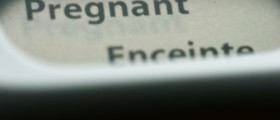



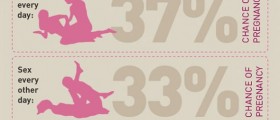



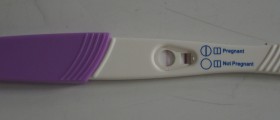
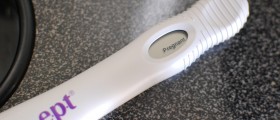
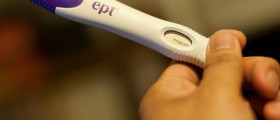
Your thoughts on this
Loading...